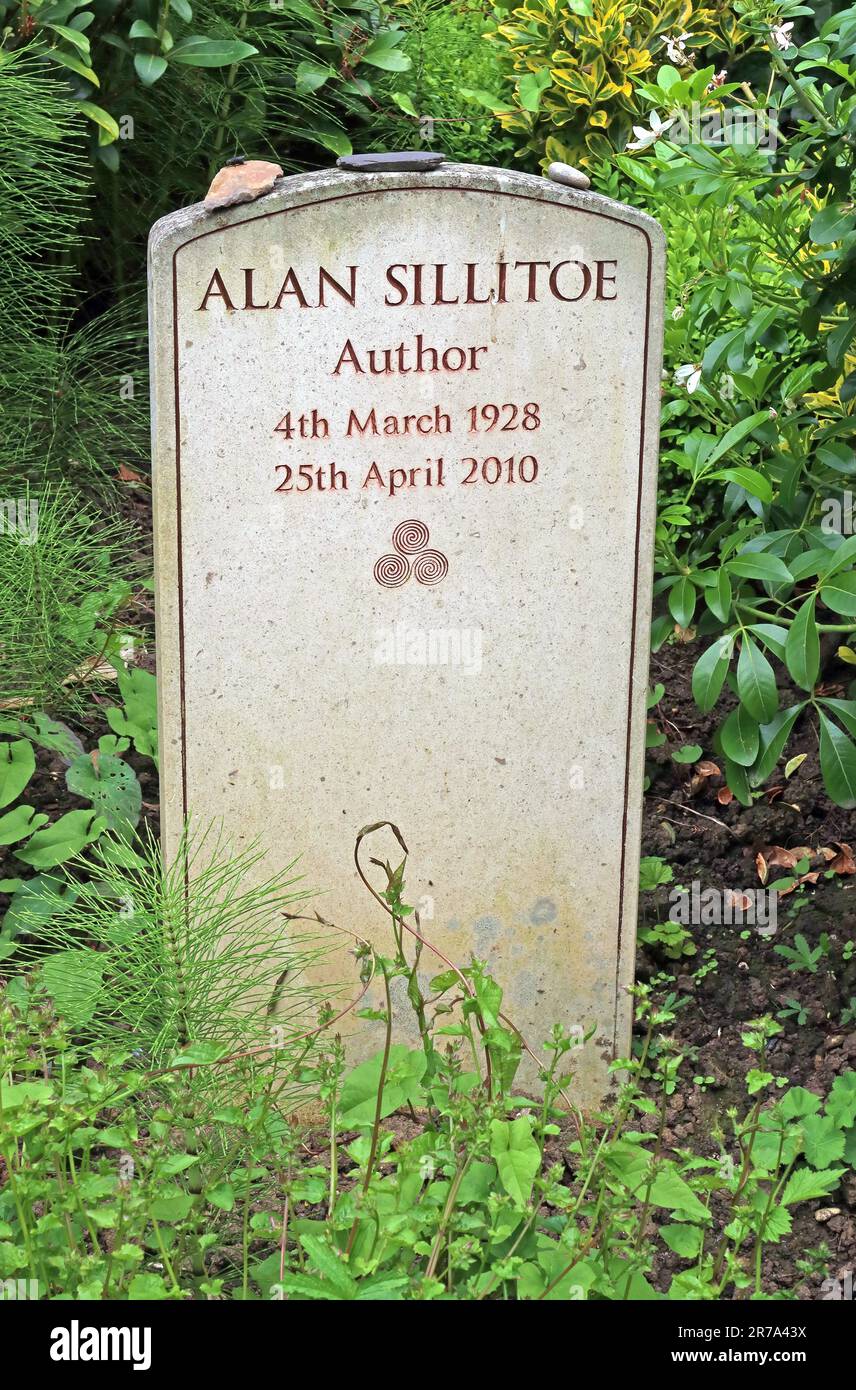Grave of Alan Sillitoe Author 4th March 1928 - 25th April 2010, buried in Highgate Cemetery, London, Swain's Lane, N6 6PJ

Image details
Contributor:
Tony Smith / Alamy Stock PhotoImage ID:
2R7A43XFile size:
50.9 MB (3.3 MB Compressed download)Releases:
Model - no | Property - noDo I need a release?Dimensions:
3424 x 5200 px | 29 x 44 cm | 11.4 x 17.3 inches | 300dpiDate taken:
19 May 2023Location:
Highgate Cemetery, Swain's Lane, London, England, UK, N6 6PJMore information:
Alan Sillitoe FRSL (4 March 1928 – 25 April 2010) was an English writer and one of the so-called "angry young men" of the 1950s. He disliked the label, as did most of the other writers to whom it was applied. He is best known for his debut novel Saturday Night and Sunday Morning and his early short story "The Loneliness of the Long Distance Runner", both of which were adapted into films. Biography Sillitoe was born in Nottingham to working-class parents, Christopher Sillitoe and Sabina (née Burton). Like Arthur Seaton, the anti-hero of his first novel, Saturday Night and Sunday Morning, his father worked at the Raleigh Bicycle Company's factory in the town. His father was illiterate, violent, and unsteady with his jobs, and the family was often on the brink of starvation Sillitoe started work on Saturday Night and Sunday Morning, which was published in 1958. Influenced in part by the stripped-down prose of Ernest Hemingway, the book conveys the attitudes and situation of a young factory worker faced with the inevitable end of his youthful philandering. As with John Osborne's Look Back in Anger and John Braine's Room at the Top, the novel's real subject was the disillusionment of post-war Britain and the lack of opportunities for the working class. It was adapted as a film by Karel Reisz in 1960, with Albert Finney as Arthur Seaton; the screenplay was written by Sillitoe. Sillitoe's story The Loneliness of the Long Distance Runner, which concerns the rebellion of a borstal boy with a talent for running, won the Hawthornden Prize in 1959.[2] It was also adapted into a film, in 1962, directed by Tony Richardson and starring Tom Courtenay. Sillitoe again wrote the screenplay. In the 1960s Sillitoe was celebrated in the Soviet Union as a spokesman for the "oppressed worker" in the West. Invited to tour the country, he visited several times in the 1960s and in 1968 he was asked to address the Congress of Soviet Writers' Unions, where he denounced Soviet human rights